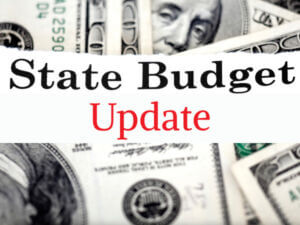Budget Talks Remain Stalled as Key Issues Still Unresolved
Source: PA Chamber of Business and Industry
 More than two months after the June 30 budget deadline, state lawmakers have yet to finalize a spending plan. Major policy and funding disagreements continue to delay progress, with both sides holding firm to their respective priorities while negotiations continue behind closed doors.
More than two months after the June 30 budget deadline, state lawmakers have yet to finalize a spending plan. Major policy and funding disagreements continue to delay progress, with both sides holding firm to their respective priorities while negotiations continue behind closed doors.
Talks remain stuck on several key issues, including overall spending, long-term fiscal sustainability, new transportation funding, and competing education proposals. Without a budget in place, Pennsylvania’s school districts, higher education institutions, and public transit agencies all remain in fiscal limbo heading into the fall.
In the most recent development, the House advanced legislation to boost state aid for mass transit and road and bridge projects, though this legislation is reportedly not a product of compromise, and therefore its prospects are unclear.
The House Transportation Committee voted 16-10 last Wednesday to advance House Bill 1788, with Reps. Shelby Labs (R-Bucks) and K.C. Tomlinson (R-Bucks) joining Democrats in support. On Sunday night, the House Appropriations Committee voted 22-15 along party lines to send the proposal to the full chamber. Earlier that evening, the House Rules Committee voted 19-14 to advance the bill, with Rep. Martina White (R-Philadelphia) joining Democrats in support. The House passed the bill today by a 108-95 vote.
The bill would increase the share of state sales tax revenue allocated to the Public Transportation Trust Fund and authorize bonding for road and bridge projects. SEPTA and Pittsburgh Regional Transit would be subject to performance benchmarks, with the potential loss of funding if targets aren’t met.
The PA Chamber has long stressed that a modern, multimodal transportation network — including reliable public transit — is essential for workforce mobility, customer access, and overall regional connectivity. Access to transit helps businesses attract and retain employees, connect with customers, and strengthen economic competitiveness across Pennsylvania.
Still, the bill’s path forward is uncertain. Senate Republican leaders have criticized the proposal’s use of sales tax revenue, warning it could crowd out other priorities like hospitals and education.
Senate President Pro Tempore Kim Ward dismissed the bill as a political maneuver, while Senate Majority Leader Joe Pittman expressed continued optimism that a consensus budget deal can be reached — though he declined to comment on the House bill directly.
Broader negotiations remain complicated by split control of the legislature: Democrats hold a narrow majority in the House, while Republicans control the Senate. Each chamber has advanced different budget frameworks. Gov. Shapiro has urged lawmakers to return to session more frequently to bridge the divide.
Last week, Ward again raised the possibility of a six-month or stopgap budget to keep funds flowing while talks continue. But until an agreement is reached, state agencies like the Department of Education face delayed payments, and public transit systems are preparing contingency plans. SEPTA and Pittsburgh Regional Transit have both warned of significant service cuts if additional state funding is not approved soon.
As negotiations stretch into August with no clear resolution in sight, the PA Chamber will continue engaging with lawmakers and the administration to encourage a responsible, growth-oriented budget agreement that supports economic competitiveness and long-term stability.
Founded in 1916, the Pennsylvania Chamber of Business and Industry is the state's largest broad-based business association, with its membership comprising businesses of all sizes and across all industry sectors. The PA Chamber is The Statewide Voice of BusinessTM.
